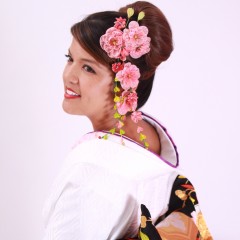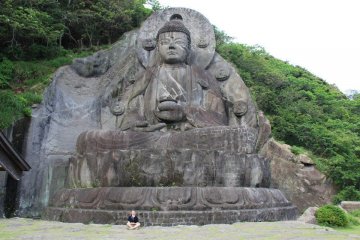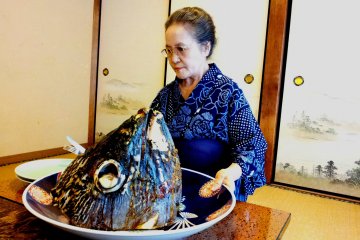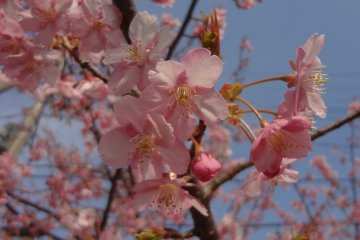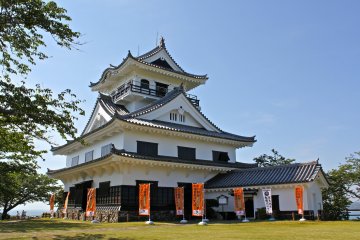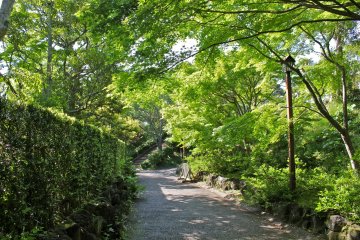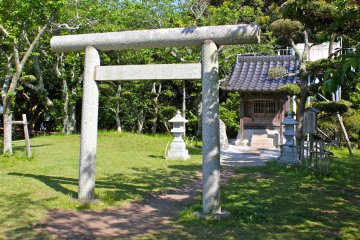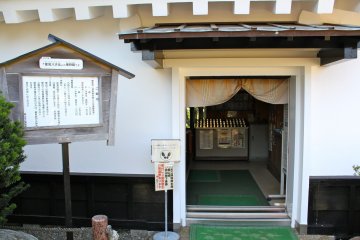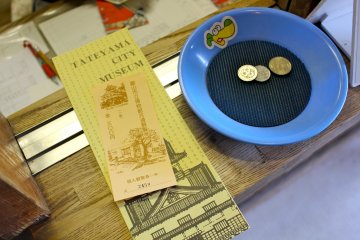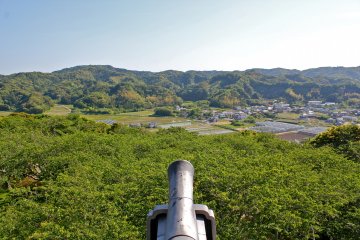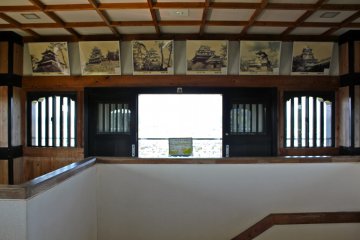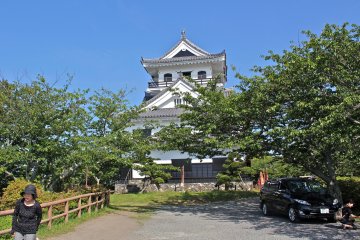Tateyama Castle (館山城 Tateyama-jō) is just one of four castles in Chiba Prefecture. Also known as Hakkenden Museum, the castle is nestled among the lush, 66-meter high hilltop of Shiroyama Park. From the castle grounds and high above in the keep tower, absorb the stunning views of Tateyama Bay spilling into the Pacific Ocean and Mt Fuji (if you’re lucky!) all throughout the year. While inside the museum, view exhibitions dedicated to the novel Nanso Satomi Hakkenden, “Legend of the Eight Dog Warriors.”
Nanso Satomi Hakkenden is an immense epic by 19th century author Kyokutei Bakin. Published over thirty years, it eventually reached 160 volumes. The story is widely adapted in movies, television shows, video games, manga and anime series. The following description comes from the Tokyo Kabuki Theater notes:
"The Satomi clan is being attacked and its lord offers his daughter Princess Fuse to the warrior that will bring him the head of the enemy. It is his loyal dog that kills and beheads the enemy and, saying that her father must not go back on his word, Princess Fuse goes with the dog.
Nevertheless, the Satomi clan is defeated and one of its loyal retainers goes to rescue Princess Fuse, shooting the dog, but unfortunately shooting Princess Fuse as well. The eight crystal beads of her rosary, each engraved with the Chinese characters of one of the Confucian virtues, goes flying through the air.
Miraculously, each will be found with a newborn baby. These eight children, all of whom have the character inu for "dog" in their names, eventually meet and join together to restore the Satomi clan. The play features all the stars of the company and follows the adventures of the eight dog warriors as they meet and gradually join together, leading to a climactic fight on the roof of a dizzyingly high tower."
According to the pamphlet you are given upon paid admission to the museum, the site of Tateyama Castle was the final stronghold of the 9th and 10th generations of the Satomi Clan of feudal lords. The clan became prominent and gradually dominated the other powerful clans to rule over the province of Awa, the southern tip of Boso Peninsula.
The outside appearance of the castle is modeled after a castle of the Tenshou period (1573-1592) and is composed of a main turret with a large roof supported by a horizontal beam capped off by a small watchtower.
Taking photos inside the museum is strictly prohibited, but the exhibitions strive to describe the history of Hakkenden through displays of its use in theatre, television and other media, spanning the Edo (1600-1868), Meiji (1868-1912), Taisho (1912-1926), and Showa (1926-1989) periods to present day. If you can read Japanese, try your hand at the computerized history quiz. If you can answer all ten questions correctly, you become a “Little doctor of history.” If you visit on Sunday or holidays, you can try on armor & helmets and take a closer look at weapons and tools.


